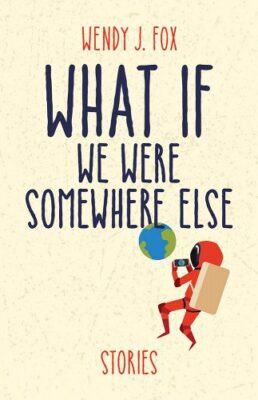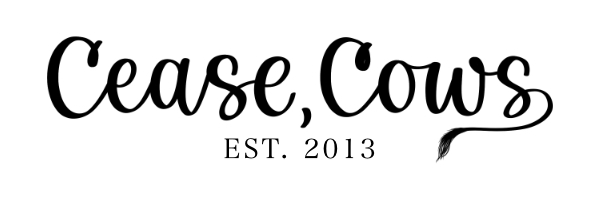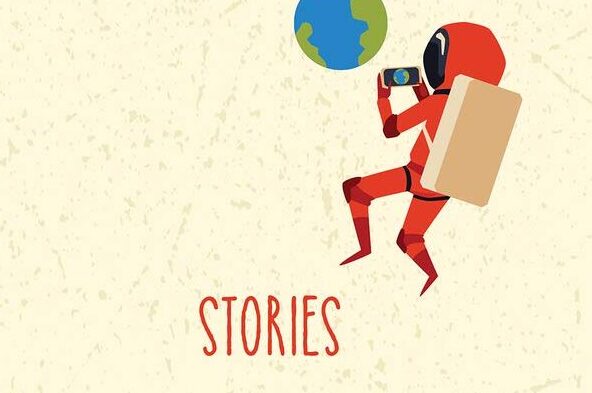Though many of us spend half our waking lives at work, most short stories avoid it as a topic. With her new collection What If We Were Somewhere Else?, Wendy J. Fox is changing that. The linked stories in Fox’s book follow several characters as they navigate the ups and downs of corporate life. It’s a compelling glimpse into a unique setting and the people whose fate often revolves around it, whether they like it or not.
Purchase your copy here.

Fox shared her thoughts in a recent interview with Cease, Cows.
Chuck Augello: What If We Were Somewhere Else? features linked stories about the employees of a nameless corporation. Were the stories written with the intention of linking them or did that happen later in the process?
Wendy Fox: Like many writers, my debut book was a collection of short stories—and those stories had been written over years, at different times in my life. I personally love story collections, and I did in fact set out to write What If as an intentionally linked collection. It’s not wholly chronological, but the ordering in it is essentially the order that I initially wrote the stories.
CA: What inspired you to write about these characters and the world in which they find themselves?
WF: When I began What If I was in the thick of a day job where I worked in marketing at the executive level at a tech company. It was a small company that still had big dreams. And I liked that about the organization. I liked the concept of trying to shoot the moon, because writers and artists are trying to do that all the time.
But it’s still the ecosystem of late-stage capitalism, and the characters in the book never outright express it—they are the antithesis of political—but they feel it. I was feeling it too. You can be into a place where you are employed but also understand and be alarmed about what you are contributing to.
Some of the linkage between the characters is that they’ve all been dismissed from their jobs. As someone who had both been fired and watched other people be fired, it’s demoralizing but also very interesting to see how people handle it.
CA: What are some of the challenges in writing a collection of linked stories? Were you tempted to turn them into a novel?
WFox: Nope, I was not tempted to turn the book into a novel. The conventional wisdom is that story collections don’t sell and book buyers don’t want stories, but I’m not sure that this is actually true. The book is selling decently and just won a Colorado Book Award in the category of literary fiction.
I have written two novels. The texture of a chapter—even though it might be the length of a story—is different than a story, and I am interested in that texture.
CA: The character Kate is dealing with both the break-up of her marriage and the downsizing of her employer. Tell us about her.
WF: Kate is a disaster. Kate’s life is different than mine, but she is also the character who I’m actually the most like, emotionally. Her problem is that she doesn’t actually know what she wants. If she were my friend, I would tell her she needs to get a grip. She would probably say, to what? To what actually am I gripping on? I’m not sure I could answer, though my life has never fallen apart in the ways that hers did.
CA: Among the characters, did you have a favorite whose stories you most enjoyed writing?
WF: “Enjoy” is tricky. The hardest stories to write were the ones that have male teenagers and young men. I spent a lot of time with my husband and some of my male friends reading the dialogue to them. Often, they were like nope, that is not how guys talk. I’m not sure I got it entirely right, but the challenge was something.
CA: Your writing is sharp about the way our work lives influence who we are outside of work. For example, Heather develops an algorithm for her sex life. How does work help define your characters?
WF: Wage work is something deeply pervasive in our lives. That’s not news. There are increasingly few writers who can string along a living through grants and fellowships and hopefully a lucrative book contract.
I don’t work full-time anymore, but I also really value the years where my work life funded my creative life. Would I have rather not worked for corporations? Hard to know. I learned a lot about what other people were doing in those years. I met so many people who remain lifelong friends.
CA: There’s no shortage of ways to spend one’s time. Why do you choose to write fiction?
WF: As a child, I made up stories in my head. As an adult, it’s the only way I know how to live.
–
Chuck Augello (Contributing Editor) is the author of The Revolving Heart, a Best Books of 2020 selection by Kirkus Reviews. His work has appeared in One Story, SmokeLong Quarterly, Literary Hub, The Coachella Review, and other fine journals. He publishes The Daily Vonnegut, a website exploring the life and art of Kurt Vonnegut. His novel, A Better Heart, was released in November 2021.
Wendy J. Fox is the author of four books of fiction, including the novel If the Ice Had Held and the collection What If We Were Somewhere Else. She has written for The Rumpus, Buzzfeed, Self, Business Insider, and Ms., and her work has appeared in literary magazines including Washington Square, Euphony, and Painted Bride Quarterly.

